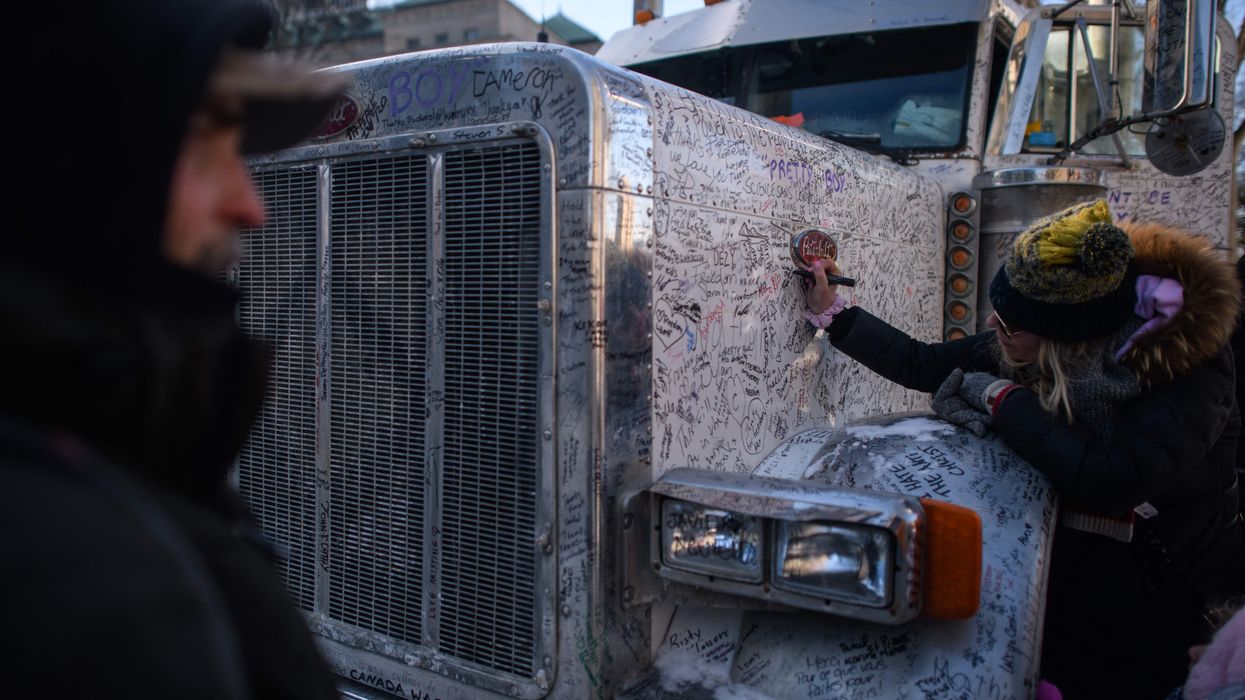Leighninger is head of democracy innovation for the National Conference on Citizenship.
The blockade of Ottawa by Canadian truckers has finally come to an end. Prime Minister Justin Trudeau invoked the federal Emergencies Act and Ottawa police moved in to evict the protesters, who were voicing their opposition to vaccine mandates. The truckers continued to wave the Canadian flag, but most either left peacefully or were arrested.
In the United States and Canada, we often romanticize protest — at least when we agree with the cause the protesters are supporting. Protesters are going to great lengths, and sometimes putting their lives on the line, to express their opinions on important public matters. They are exercising their rights to free speech and assembly because they don’t feel heard in any other way. One notable history of the protest movements of the 1960s is titled, “Democracy Is in the Streets.”
Or is it? Nonviolent protesters may be brave, but they aren’t necessarily informed, principled or acting in the best interests of their communities and country. Even when it is peaceful, a protest is not a safe space for people who disagree to negotiate and find common ground. It is not an environment that helps people absorb information and sort out fact from fiction. And protesting is dangerous, especially for people of color, indigenous people, religious minorities, and members of other groups that are already subjected to discrimination and violence.
Democracy works better indoors — at least it should. Unfortunately, while most of our “indoor” democratic opportunities are safer than protesting, they are generally not empowering, participatory or collaborative. Most public meetings and hearings operate by a 100-year-old formula that gives citizens a few minutes at a microphone to express their concerns. Even the layout of the room reinforces a kind of “parent-child” dynamic between public officials and the public, with officials sitting in comfortable chairs on a raised dais with name plaques while citizens mill about below. These official interactions tend to make everyone angry, and they increase mistrust between citizens and government.
There are, however, many proven ways of making democracy work better. Around the world, citizens and officials have developed innovations that make governance more informed, equitable and deliberative. Many of these reforms and practices give people a greater voice in public decisions and inspire citizens to devote some of their time, energy and skills to their communities.
These reforms and practices include engagement commissions, large-scale deliberative processes, serious games, participatory budgeting, citizen’s assemblies, SMS-enabled discussions, youth voice programs, crowdsourcing processes and many others. Democratic innovations have been instituted in many countries, from Iceland to Taiwan to Colombia, as well as at the local level in some U.S. cities. When asked in surveys and opinion polls, Americans favor these kinds of innovations, even across party lines: Support for these measures ranges from 75 percent to almost 90 percent, without significant differences between Republicans and Democrats.
An interesting benefit of protest is that the experience tends to bond people. Like the Black Lives Matter and Occupy Wall Street protesters before them, the Canadian truckers strengthened relationships and built trust with one another —for many it will turn out to have been a formative political experience. But protests don’t have to be the only opportunity for bonding: We can and should build more civic opportunities that have those same benefits into the ways that our institutions and communities function.
Polarization has become such a problem in America that many people can’t imagine having a reasonable conversation, let alone a productive encounter at a public meeting, with someone on the “other side.” And it is true that not everyone is capable of being reasonable. But the vast majority of Americans, and Canadians, have enough common decency that — especially if they are in a safe, supportive environment for deliberation — they can listen to one another’s experiences, analyze information together, disagree politely on some things and agree wholeheartedly on others. To overcome polarization, and to deal with shared challenges, we need more of these kinds of opportunities in public life.
Though the drama in Ottawa ended with more of a whimper than a bang, the conclusion will probably not make either the truckers or their opponents happy (or the downtown businesses and tow truck companies thathave been caught in the middle). It may make Canadians who were hesitant about vaccines more resistant. It may help extremists co-opt the Canadian flag and portray their causes as patriotic.
Even in a more successfully democratic society, there should always be room for protest. Many social movements have achieved great benefits to society, particularly in advancing civil rights, by taking to the streets. Free speech and assembly should be protected, because protest is the last resort for people who want a say in public decisions. But if it is the only resort, we all lose.



















Marco Rubio is the only adult left in the room